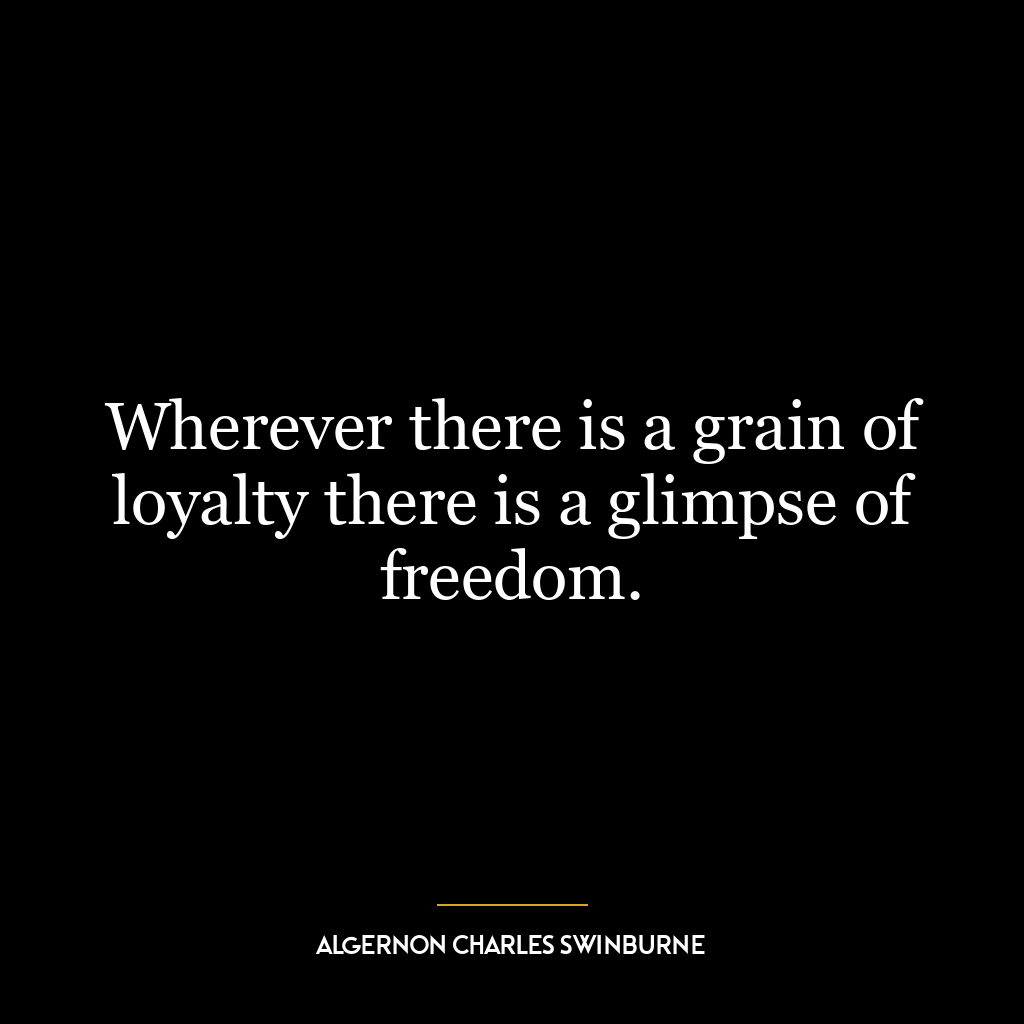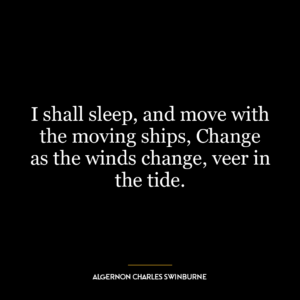“Wherever there is a grain of loyalty there is a glimpse of freedom,” this quote suggests that loyalty, even in it’s smallest form, can lead to the experience or feeling of freedom. Loyalty here can be understood as faithfulness or commitment to someone or something. This could be loyalty to a person, a cause, an idea, or even oneself. The freedom referred to in this context isn’t necessarily physical liberty but rather psychological and emotional liberation.
When we are loyal to someone or something, we make a conscious choice and commitment. This decision-making process gives us agency which is essentially freedom – the power to act independently without constraint. Thus, even if our loyalty leads us down challenging paths where we might have obligations and responsibilities that could feel constraining on surface level; it’s still our own choice that led us there making it an embodiment of personal freedom.
In today’s world filled with countless options and opportunities at every turn, this idea holds meaningful relevance. In the realm of personal development for instance; being loyal to one’s values and goals can bring about immense inner peace and satisfaction – which is indeed a form of personal freedom from doubts and insecurities.
Take for example an individual who has chosen environmental conservation as their life’s mission – thay may face numerous challenges such as lack of support from society or financial constraints but their unwavering loyalty towards their cause will always give them the sense of purposeful liberation because they are living true to themselves despite all odds.
Similarly in relationships too; when two individuals are loyal towards each other – they create an environment where both parties feel secure enough to express themselves freely without fear thus manifesting emotional freedom within the relationship dynamics.
So ultimately what Swinburne seems to suggest through this quote is that while being loyal might sometimes seem like surrendering your independence on surface level; it actually provides you with profound psychological autonomy because you’re acting based on your own convictions rather then external influences.















